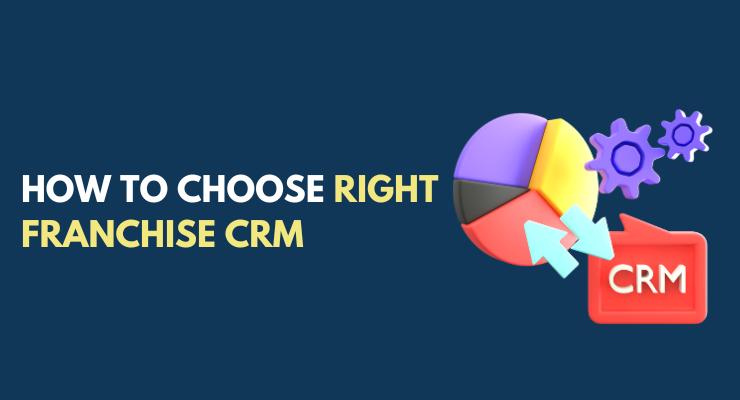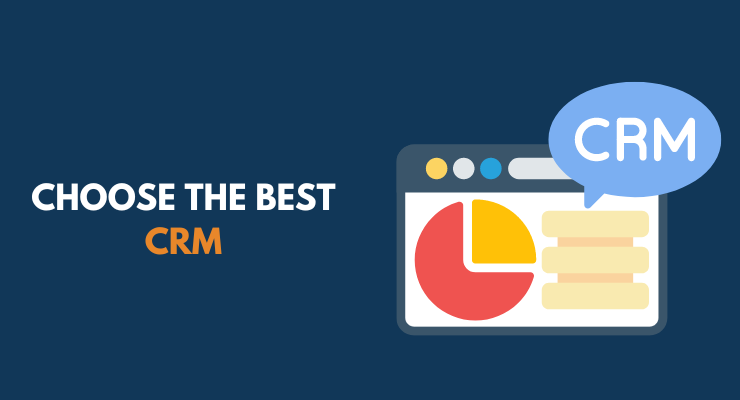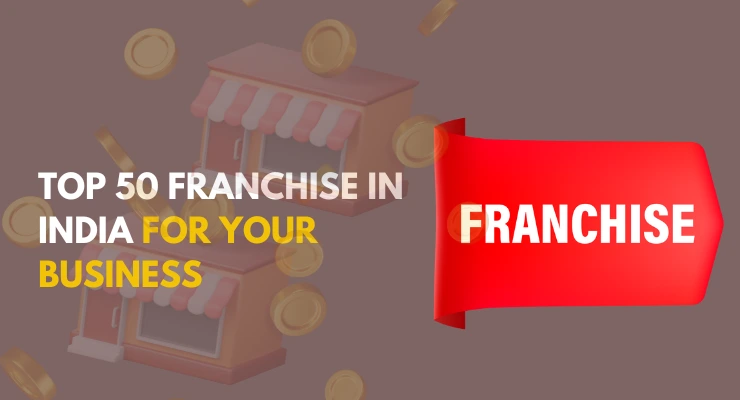
How to choose the right Franchise CRM
Franchising has become quite a popular business model as it helps entrepreneurs expand their businesses while minimizing the risks.
Despite this, managing a franchise is a challenging task, especially when it comes to keeping track of customers as per their data and interactions.
This is where CRM (Customer Relationship Management) comes in as a valuable tool that aids in handling engagement with potential franchise partners, enhances the sales process, and tracks the leads.
With its array of benefits as well as the key aspects of franchise sales CRM takes centre stage as an indispensable asset for the franchise network.
In this article, we will dive into the world of CRM for franchises and will provide a comprehensive guide on what it is exactly and how one can choose the right franchise CRM for their franchise.
What is Franchise Customer Relationship Management?
Franchise CRM acts as an innovative and comprehensive resolve to plan sales boost, and customer engagement and to enhance the franchise operations. It also enables businesses to streamline communications, foster customer loyalty, and monitor leads.
Well, one of the primary advantages of taking a franchise CRM is its capability to organize and centralize the data. Well, gone are the days when there was a sifting of multiple emails, spreadsheets, and other important things to find information.
With CRM systems, a franchisor can seamlessly categorize and operate the leads, and key info about the business, and vendors, store vital documents and even schedule a future intervention in a centralized location. The streamlined operation also ensures decision navigation and saves time and costs.
Not only this, CRM also renders real-time insights which empowers the franchisors by gathering important data and future analytics in one go.
By tracking the pivotal performance metrics like sales oscillations and development progress of the franchise, the franchisors can gain an understanding of their business’s present and future.
This also helps a franchisor to pinpoint the untapped arenas of advancement, sales strategies, and future growth opportunities. With the power of data navigated determination, the franchisors can even maximize their revenue.
Another facet of CRM lies in elevating the connectivity and the franchising network. The CRM platform facilitates the franchisors to centralize the seamless interactions with the sales team on the communication logs as well as on the other departments.
Every participant in a franchise of this network can easily share important information including all the stakeholders. The improved collaboration also fosters efficient workflow which results in amplified revenue.
The Importance of CRMs in Franchising In Simpler Terms
The CRM is known to be far more glorified than just a contact list. As, it serves to be a centralized platform for purchase history, customer data, communication logs, and preferences. Well, this is particularly vital for the franchises as they need to have a standardized customer experience across many locations at one time.
A well-chosen CRM can help franchises anticipate customer needs, personalize interactions, and even foster the loyalty of customers. However, it is seen that many businesses fail to figure out the best CRM system for themselves which can help them accelerate their growth. As there is always a fear of choosing the right one.
To help you with this, we’ve created a list of things that you might be looking for in the right CRM system.
Also read: Tikhi Gali Franchise: Cost, Profits, Fees, and How to Apply Online
How To Choose The Best CRM?

The CRM system is the heart of a business so it does require a few things that need to be considered when it comes to looking for the right solution. Let’s dive into the details below.
- Identify Your Specific Needs
- Scalability and Customizability
- User-Friendliness and Ease of Adoption
- Integration Capabilities
- Mobile Accessibility
- Reporting and Analytics
- Security and Data Privacy
- Vendor Support and Reputation
- Cost and Return on Investment (ROI)
- Trial and Demo
1. Identify Your Specific Needs
Understand the unique requirements and objectives your business may have when it comes to the sales of the products in the franchise.
Consider factors like contact management, lead management, sales pipeline tracking, document management, reporting, and integration capabilities with the other systems. Make all the essential functions and features which is important for you in the sales of your franchise.
2. Scalability and Customizability
Choose a CRM that can accommodate your current as well as your future franchise business needs. Consider the expansion and growth of the business it may bring in and ensure that the CRM you choose can scale up to that accordingly.
Moreover, you should also look up systems that can be tailored to your specific franchise workflows and sales.
3. User-Friendliness and Ease of Adoption
It is important that a CRM system is intuitive and user-friendly and ensures easy adoption by the sales team. A complex system or its techniques can lead to less productivity and resistance from users. Look out for a CRM that offers an intuitive user interface and could also provide support and training resources to the users.
4. Integration Capabilities
Consider the ability of CRM with other tools and systems used in the franchise business.
It is important that they can navigate with the email service provider, marketing platform, lead generation tools, and even any other tool you may be using for your franchise. Seamless integration reduces manual data entry and ensures data consistency.
5. Mobile Accessibility
In today’s tech and mobile-driven time, having a CRM that works on mobile devices is important.
Look for the CRM which offers a mobile app and responsive web interface that allows updated customer information, access to the team, tracks sales activities, and can manage the work remotely.
6. Reporting and Analytics
Effective analytics and reporting are essential when it comes to measuring the performance of your franchise sales.
You should look for a CRM which offers robust reporting features that allow you to generate insightful reports and help you analyze the data to make informed decisions.
Well, customizable dashboards and visualizations can also help in providing a quick overview of sales performance.
7. Security and Data Privacy
Ensure that the CRM system prioritizes privacy and secures your data. Look out for CRM providers that employ secure hosting, and protocols, encryption, and provide regular backups all of which protect the sensitive information of a customer.
You can even consider the compliance of CRM systems with data protection regulations such as GDPR (General Data Protection Regulation) if applicable to your location.
8. Vendor Support and Reputation
Evaluate the customer support services and vendor’s reputation. You can do this by researching the customer reviews, and testimonials and by reading the case studies to understand the experiences of other franchise businesses.
You must also consider the vendor’s responsiveness to the inquiries you put in the availability of resources such as training, documentation, and tutorials, and the commitment to ongoing improvements and system updates.
9. Cost and Return on Investment (ROI)
Assess the pricing structure and check the cost-effectiveness of your franchise business. You should also consider the total cost of ownership, licensing fees, potential customization costs, implementation fees, and ongoing support costs.
You should also calculate the potential ROI by estimating the time as well as the resources it can save which can also have an impact on the sales revenue and productivity.
10. Trial and Demo
Before making a decision, be sure that you take advantage of free demos and trials which are offered by the CRM providers. This will allow you to explore the system firsthand as well as help you to know the functionalities and help in assessing its specific franchise sales needs.
You should also involve your sales team during the evaluation process to gather feedback as well as to ensure that they buy in.
Check out this: Burger Singh Franchise: Investment, Opportunities and Benefits
Final Words
Choosing the right franchise sale for CRM does require careful evaluation of your usability, needs, scalability, security, integration, and vendor support.
Well, by considering all these factors and by involving all the relevant stakeholders in the decision making one can carefully analyze every franchise sales CRM solution.
You should also be able to find a software platform that addresses your needs and can help you more efficiently drive buyer activity through the franchise sales process.
To know more about how to run a franchise effectively with other solutions, continue reading on our site!












